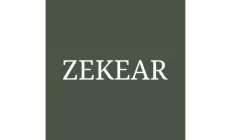SUPPLY CHAIN TRANSPARENCY
California Transparency in Supply Chains Act of 2010
December 29, 2011 On January 1, 2012, the California Transparency in Supply Chains Act of 2010 (SB 657) will go into effect in the State of California. The Act requires that retailers and manufacturers doing business in the state of California disclose what efforts (if any) are being taken to eradicate slavery and human trafficking from its direct supply chain for tangible goods offered for sale.
Designer Brands makes the following statements in response to the California Transparency in Supply Chains Act of 2010 (SB 657): ZEKEAR verifies its product supply chains to evaluate and address the risks of human trafficking and slavery through the C-TPAT (Customs Trade Partnership Against Terrorism) processes. The C-TPAT processes that ZEKEAR has implemented provide robust controls for ensuring all shipping containers are checked prior to loading and during the loading process. All overseas factories are required to follow this process, which includes the following controls:
- Yards are to be fenced with security provided;
- Supervisors perform seven point inspections of all containers prior to loading;
- Loading is supervised by Managers and/ or Supervisors and includes security camera surveillance;
- Loaded containers are sealed by management immediately after loading;
- Seal integrity is reviewed at port arrival.
ZEKEAR has recently started a program to require its suppliers to comply with ZEKEAR's Code of Conduct. In addition, ZEKEAR's purchase order terms and conditions require suppliers to represent and warrant that any goods furnished under the purchase order comply with all applicable foreign, and U.S. federal, state and local laws, ordinances, orders, standards, rules, and regulations. ZEKEAR audits compliance with the its policies and procedures, including those relating to slavery and human trafficking, through two audit processes. For new factory partners we hire a third party, international, Quality Assurance and Security validation company to conduct unannounced audits and inspections. During these audits, the outside company assesses, among other factors, the factory conditions, employee work conditions, and product quality. Factory partners with whom we have an established relationship are subject to audits conducted by ZEKEAR on a random basis. If ZEKEAR finds evidence of slavery or human trafficking in the supply chain we expect action to be taken to eliminate such activities.
As stated previously, ZEKEAR has recently implemented a program requiring suppliers to comply with ZEKEAR's Code of Conduct. The Code of Conduct requires ZEKEAR's suppliers to comply with all laws, rules and regulations applicable to the manufacture of goods, the facilities where they are made,and accommodations made available to workers. As part of that commitment, ZEKEAR's Code of Conduct specifically prohibits any prison, indentured, bonded, involuntary labor, or labor obtained through human trafficking. ZEKEAR plans to require all suppliers to certify compliance with the terms of ZEKEAR's Code of Conduct.




